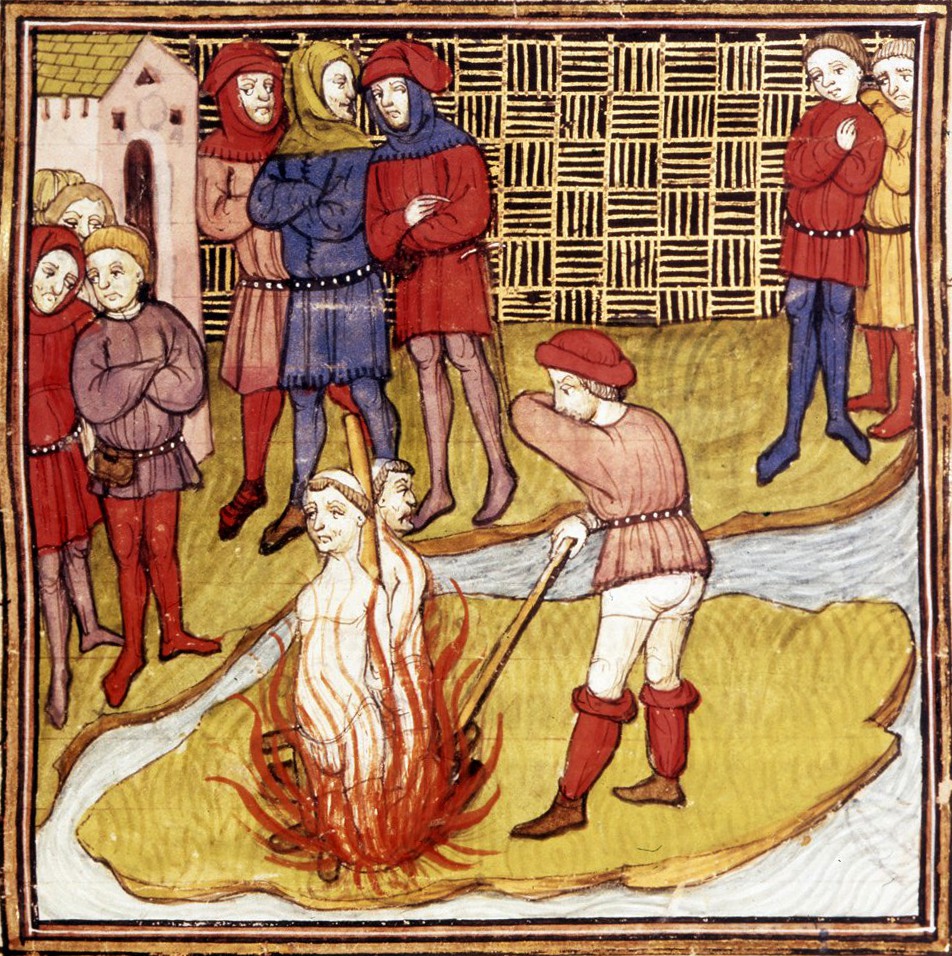"The trial of the Templars is one of the most sensational events of the high middle ages. Contemporaries expressed astonishment when, on the 13th, the day after the funeral, all the members of the order in France were suddenly arrested and accused of what amounted to the renunciation of the faith that they were supposed to be defending with their lives.
They had, the French government alleged, all been received into the order in ceremonies in which they denied Christ, spat on a crucifix and engaged in obscene kissing with their receptor and, thereafter, they had been obliged to take part in acts of sodomy with other brothers and to worship idols. Molay was not alone: during November and December, French royal officials succeeded in gaining admissions of guilt from nearly all the Templars in their custody, and it looked as if the order was doomed.
However, the trial was prolonged because of unexpected resistance, first from the pope, Clement V, and then from the Templars themselves, led by the order’s former procurator at the papal court, Peter of Bologna. Clement V intervened because he regarded the affair as an affront to his jurisdiction and dignity, for he had not been consulted about the arrests but, as he could not reverse the process, he decided to attempt to take over the proceedings himself, ordering arrests in other countries and conducting his own inquiries. The papal intervention had a quite startling effect, for some of the Templars withdrew their confessions, claiming they had been made under coercion. Thus, early in 1308, the pope suspended the proceedings, and it was only after massive pressure from the French crown, culminating in a direct confrontation at Poitiers in May and June 1308, that he could be induced to restart them. This time they took the form of a papal commission to inquire into the order as a whole, and a series of local, episcopal inquiries, which were to investigate individuals at the diocesan level.
The operation of the papal commission in Paris offered the Templars another opportunity and there, in the spring of 1310, they mounted such an effective defence that the French government had to resort to further intimidation in the form of execution by burning of various groups of Templars who had the misfortune to be held in dioceses where the bishops were closely allied to the French monarchy. Even then, there were Templars willing to offer a defence before the commission, but the French government’s control of the personnel of the order meant that few of them had the chance to speak out again. The end came in the spring of 1312 at the council of Vienne, when the pope, having gathered reports from across Christendom, declared that the order was too defamed to continue and thus suppressed it, although he did not condemn it on the original charges. Its property was to be transferred to the Hospitallers – by this time established in Rhodes – so that it could continue to be used in the cause of the recovery of the Holy Land, which the pope claimed had been the original intention of the donors."
The trial of the Templars has been summarized by Malcolm Barber in the Introduction to "The Debate on the Trial of the Templars (1307–1314)" by Jochen Burgtorf, Paul F Crawford, Helen J Nicholson (edts).
This blog quotes a part of the introduction.

No comments:
Post a Comment